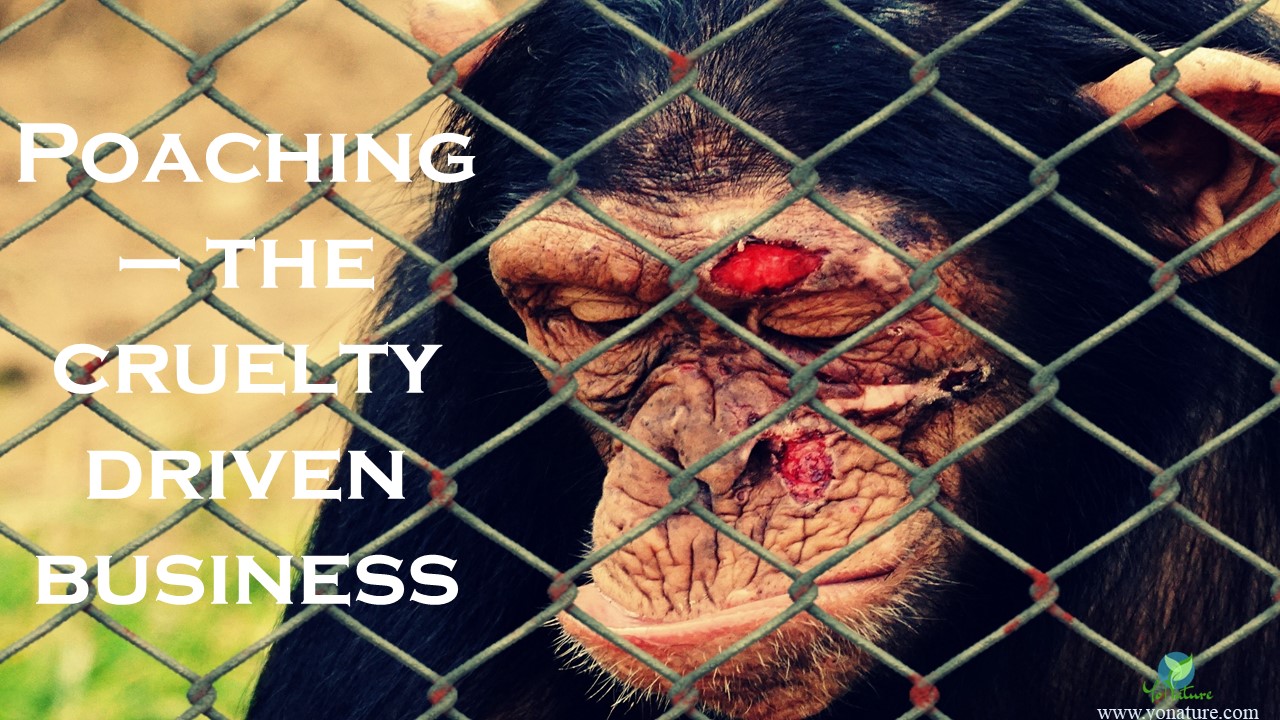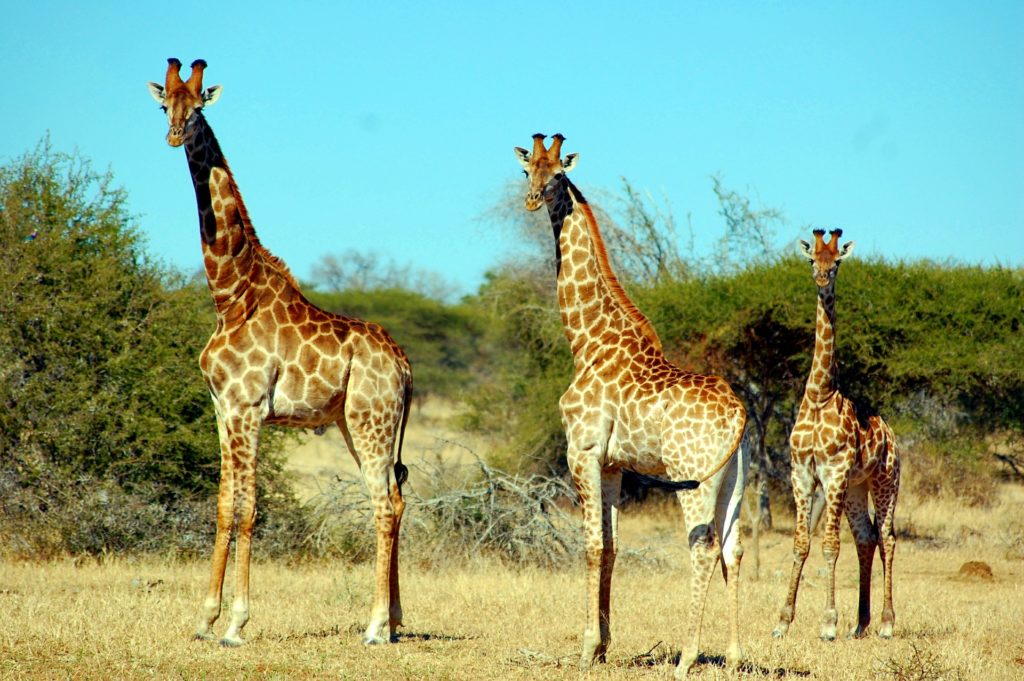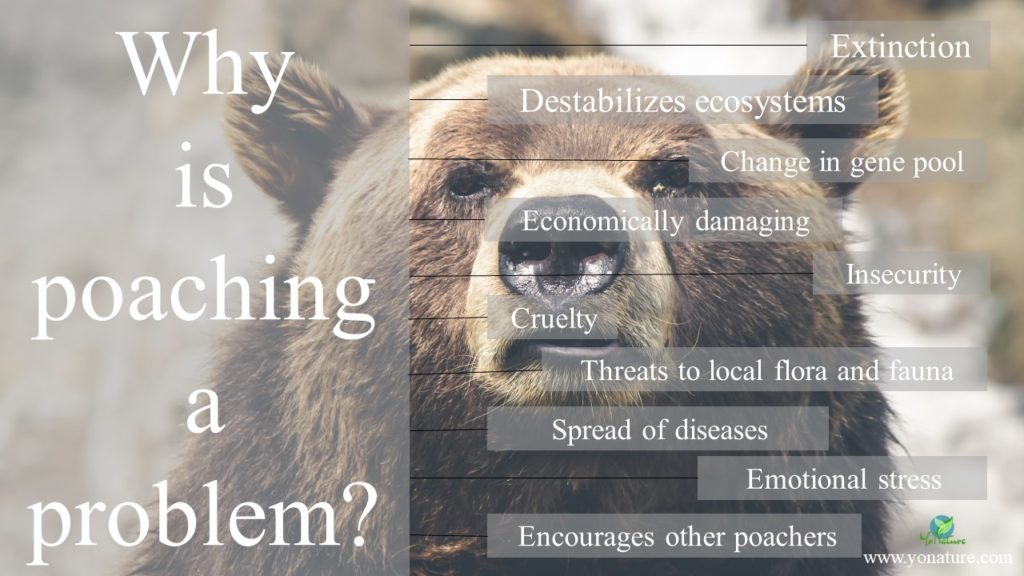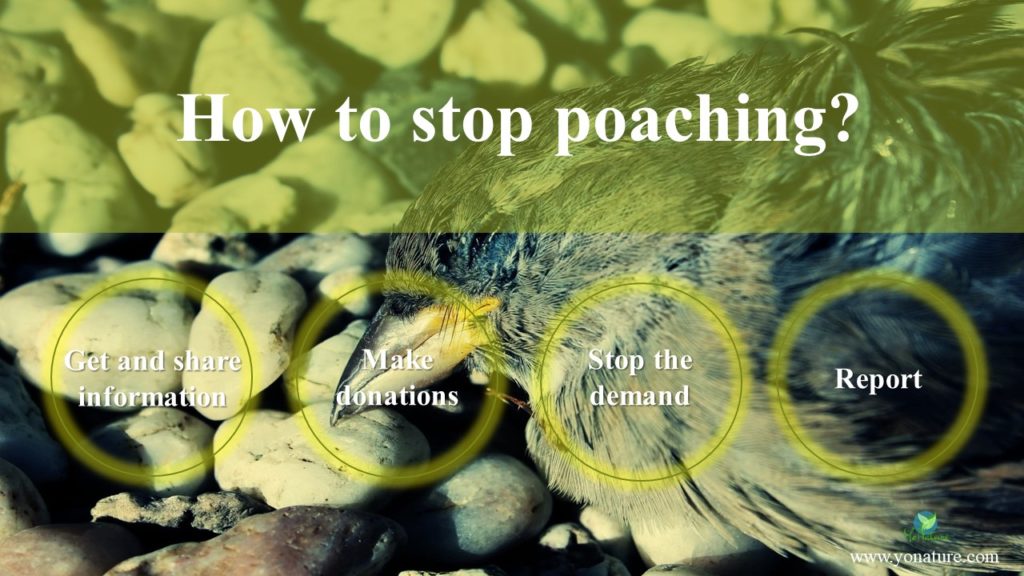Poaching – the cruelty driven business

Poaching is now becoming as dangerous as drug trafficking. In fact, it is causing a baffling decline in the number of animal species in the wild. Iconic creatures like rhinos, tigers, gorillas, lions may disappear in the wild because of it. As an example, we estimate that poachers hunt at least 100 African elephants in a day for their tusks!
What is poaching?
Poaching is the illegal killing, hunting and capturing of animals for meat and selling or using of body parts for profit. It includes
- killing animals out of hunting seasons (on land, air and water);
- hunting on reserves or protected areas without permission;
- trailing animals outside of hunting hours;
- using illegal materials to hunt (like dynamites);
- killing and/or injuring an animal which is protected by the law;
- assassinate animals for body parts only such as horns and skin;
- capturing protected animals for personal use, trophies and experiments.
Put simply, poaching is the killing of animals without permits.
Wildlife trade
Basically, wildlife trade is the exchange of wildlife products, animals and plants, in parts or whole, for monetary or material gains. Every day, people transport animals and plants from their wild habitats to transform them into shoes, baskets, pets, medicine etc. Wildlife trade reaps in the billions of dollars per year. In the EU alone, we estimate it to be around 100 billion Euros.
Legal wildlife trade
As the name says, legal trade in wildlife is the exchange and/or selling of animals and plants from the wild on a legal basis, that is, with permits. Governing bodies of local countries and the CITES oversee it locally and internationally respectively.
So, we can track and monitor wildlife commerce to prevent over-exploitation of resources and their unintentional extinction.
Illegal wildlife trade
Unfortunately, over the years, illegal wildlife trading has escalated to dangerous levels. Wildlife traffic on the international black market is now worth billions of dollars per year.
Illegal wildlife trade is the exchange or sale of animals and plants without legal permits. Here, people do not care whether the resource is in small numbers or not. In this way, illegal wildlife trading puts many species in danger.
Why is poaching such a problem?
1. Extinction
When people poach animals, it is unsustainable. It often results in a dramatic decline in the number of species until it disappears altogether. What’s more, if the organism in question exists in only one place, we can lose a single species at one go like the Dodo bird on Mauritius Island.
2. Destabilize ecosystems
As it is, in a natural environment, all animals and plants occupy specific niches for the proper functioning of the ecosystem. Keystone species are those that play an integral part in shaping and forming the environment. When we remove certain organisms from their positions, it can crash the whole ecosystem.
African elephants, for example, shape forests, dig water holes and disperse plant seeds miles away from their original locations. Removing elephants disrupts the way in which the African forests function. For instance, when seeds don’t reach the ground, trees do not sprout.
3. Change in gene pool
Also, as people hunt and kill more animals for specific body parts (tusks, whiskers, scales), those without these traits have better survival chances. Over the years, animals that do not possess these characteristics are favoured to live. In this way, natural pressure changes the gene pool of organisms.
4. Impacts on the economy of nations
In general, wildlife tours and sightseeing is a major source of income for many people in developing countries. Not only is the economy directly tied to the animals, but to the hotels, markets, shops and craft industry also. Fewer animals to none at all thus results in less income.

5. Insecurity
Additionally, when tourists hear of wildlife poachers in certain regions, they will tend to feel insecure. Consequently, they will be reluctant to visit such areas.
6. Cruel ways to poach animals
When it comes to poaching, most of the time poachers are only after specific parts of an animal, like the skin or the horn. To obtain these, they often hurt the animal cruelly. They use dangerous traps, shoot them and let them bleed to death or by infection. Sometimes, they also use lethal drugs and torture them to get what they want.
More often than not, when poachers shoot from a distance, they kill other animals unintentionally.
7. Threats to local fauna and flora
As a matter of fact, operators closely monitor animals and plants at a country’s entry point. This is because foreign species also come with foreign problems. They can either become invasive and kill native species or they can carry diseases.
8. Spread of diseases
In the same manner, when poachers smuggle animals and plants into a country, they also carry with them foreign microorganisms. Viruses can spread to humans in this way and cause diseases like avian viruses have done.
9. Emotional stress
Many animals relate to their peer in the same way humans do. African elephants, for instance, have strong emotional ties with their families. When adults are poached in front of calves, they are traumatized.
Sometimes, if we care properly for them, they make it through life. But more often than not, calves of victims die due to the emotional stress that the savage death of the parents caused.

10. Poaching encourages other poachers
As it is, poaching is becoming a huge money making-industry. When other people see the amount of money that it’s bringing on the black market, they go for it. More and more poachers inevitably mean greater dangers to our wildlife.

What drives poaching?
a. Lack of knowledge
Ever since humans have learnt to make tools, they have killed animals for food and clothing. In many parts of the world, traditional hunting is still ongoing. Most of the time, though, villagers and tribal people are unaware of the consequences of their acts. Nor do they know that the particular organism does not exist anywhere else.
b. Traditional medicine
Many learned nations, however, believe in the properties of certain plants and animals to cure diseases. While components of medicine are indeed extracts of living organisms, some people favor traditional medicine. Thus, they would rather use whole plant or animal parts.
In Asia for instance, many people believe that rhino horn can treat fever, rheumatism to snakebites. Scientifically, horns are made up of keratin just like our nails. But citizens in Vietnam, China, Malaysia and Korea believe deeply in these remedies.
c. Trophy hunting
Eager and persistent hunters have trailed lions, rhinos, elephants from north to south only for the joy of killing them. In this way, they can get a head/horn/skin/teeth trophy out of our wildlife. With more animals endangered and threatened with extinction, the lust for trophies has increased.
d. Poverty
Sad but true is the fact that it is actually poor people who carry out most of today’s poaching. While the rich enjoy the market for poached animal parts, it is the poor villagers who illegally do so for petty money. The state of poverty that the Malagasies are in, for instance, forces them to poach the critically endangered lemurs for meat.
e. China’s new economic market
However, the recent poaching crisis has been aggravated by the emerging economic situation in China. A change in the wind for the Chinese has resulted in a lucrative demand for ivory and rare animal parts on the market.
Ivory trinkets and animal skins are traditionally possessed by the rich in China. In view of their new wealthy status, the Chinese are craving for these materials. Though trade in these wildlife products is banned, an illegal black market is fueling this traffic like crazy.
How to stop poaching
- Get and share information – it is vital for each and every one of us to get informed about poaching issues so that we can share it with others who are unaware of the issue.
- Donations – conservation campaigns require funds. Training and equipping rangers also cost a lot. If it is possible for you to donate to protect endangered species, do so.
- Stop the demand – the driving force behind poaching is the market demand. Don’t buy things that are made from poached organisms. Go for their alternatives instead. Buy certified and eco-friendly products. Do not hesitate to ask the seller the place of origin of the products.
- Report – if you are aware of wildlife crime or poaching near you, report to the responsible body of your government!


Pingback: Positive and Negative Impacts of COVID-19 - Yo Nature
Pingback: Effects of flooding: Positive, Negative, Examples - Yo Nature
Pingback: Effects of landslides: Positive, Negative, Examples - Yo Nature
Pingback: Monkey Trade in Mauritius: Controversies and Benefits - Yo Nature
Pingback: Coral reefs of Mauritius - Yo Nature
Pingback: 5 reasons why ecotourism is better than traditional tourism - Yo Nature
Pingback: positive impacts of tourism on the environment - Yo Nature
This is horrible indeed, what we are doing to our planet will come back to us with a strong fist, sooner or later.
Pingback: Are elephants becoming extinct in the wild? - Yo Nature